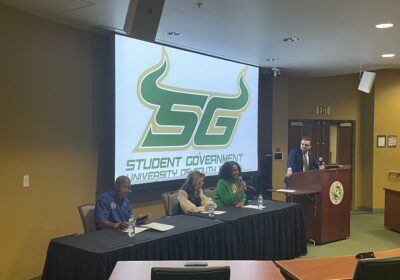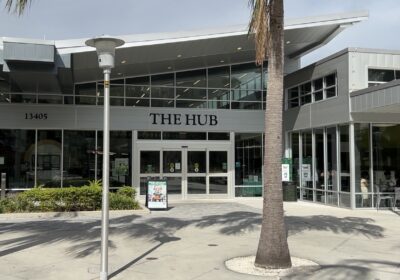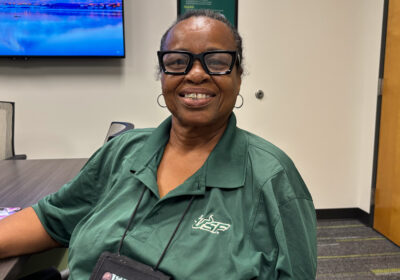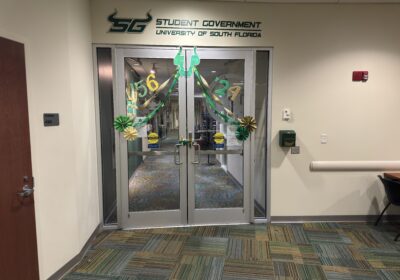Students return to campus with limited COVID-19 protocols amid variant surge
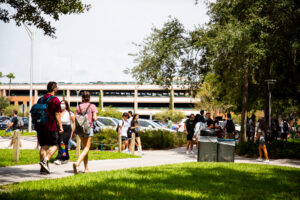
The COVID-19 omicron variant has been rapidly spreading around the world, however, USF won’t be taking the same approach as it did when students returned to campus in fall 2021, according to College of Public Health Dean Donna Petersen.
The campus will remain fully in person and will provide fewer online alternatives to promote students attending in-person classes.
“We made the decision before the fall semester to try to find ways to live with this and to ask everyone to cooperate in the spirit of our collective responsibility,” she said.
“We opened our classrooms [in fall] and we did a decent job, but the delta variant threw us for a loop. But those numbers were coming down, and we made the decision at the end of the term to continue with that approach.”
Many other protocols, such as flipping classes online or giving on-campus residents the option to show their vaccination cards upon their return, will not be enforced for the spring semester, Petersen said.
One reason for the lack of protocols may be correlated to the lessened severity of this variant compared to past ones, according to Petersen.
“So many people are getting infected … but it doesn’t cause a severe illness,” she said. “So the hope is that this variant burns through the population and builds immunity, just by the virtue of having infected so many people, and that’ll make it harder for a new variant to take hold.
“We’re not planning on [moving classes online]. We don’t think omicron requires that level of intervention. But should the virus itself change or something else emerge? That’s certainly a tool we have in reserve if we need it.”
The way the university will report students who test positive for the virus will change as well, according to Petersen.
“We are not going to be tracking locally anymore like we were. We’re seeding that responsibility back to the Florida Department of Health,” she said. “Obviously, we’re testing at USF Health Morsani clinic and we’re testing at Student Health and we will continue to report those results to the Florida Department of Health.”
Students will still be required to self-isolate should they test positive, as Petersen said the isolation beds on campus are limited in capacity. While no exact number was given, she said they have about a third of the beds they had available at the start of the pandemic.
Following the recently changed Centers for Disease Control and Prevention guidelines, students can return to campus if they test negative for the virus and show no symptoms after a five-day quarantine, Petersen said. If they still test positive after five days, it’s encouraged they don’t return to campus until they reach 10 days of quarantine.
Petersen predicts the general consensus among students and faculty returning to campus will be mixed.
“To anyone with particular concerns, we want to hear from you and we want to work with you as best [as] we can,” Petersen said. “We are encouraging our faculty to be flexible and to accommodate students’ needs as best they can.
“On the other hand, I’m hearing a lot of enthusiasm for people wanting to be back to something normal. To the extent that we can create a normal university experience for all of us, that’s what we’re hoping to achieve. And what I’m hearing is that people are eager to have that kind of experience.”
Although there are few requirements in place for students to follow, Petersen said the university encourages everyone returning to campus to wear their masks and stay home if they aren’t feeling well.
“We are fully open but we are asking people to do what they can to contribute to our collective health and safety. The messaging hasn’t changed because of the omicron variant,” she said.
“Case numbers are surging, so we’re continuing to encourage vaccines, masking when indoors and to stay home when you don’t feel well. We’re just proceeding to get to a point where we will live with COVID-19. We don’t think it’s ever going to go away.”

